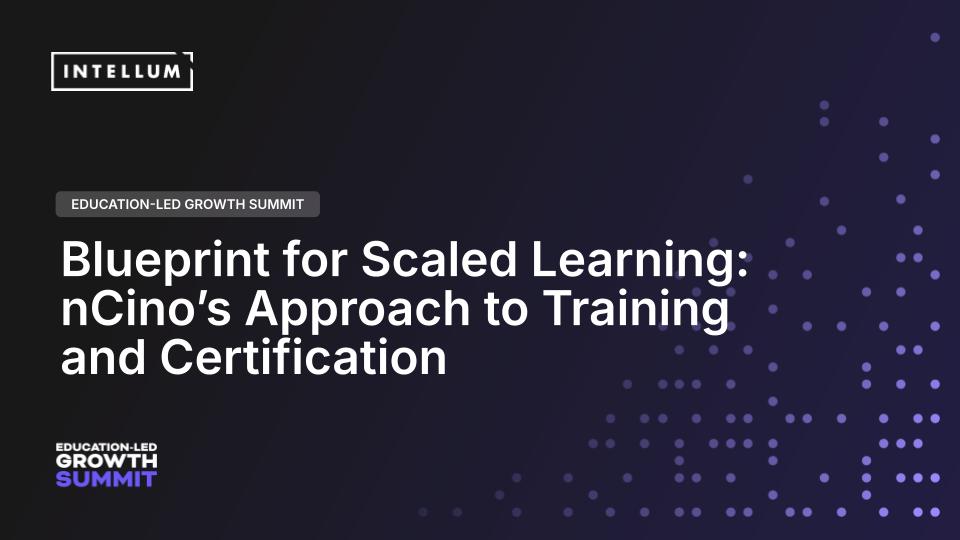Overview of the Webinar
The webinar provided an insightful discussion on the concept of Education-Led Growth (ELG), hosted by Shannon Howard, Director of Customer and Content Marketing at Intellum, and Anderson Campbell, who leads the product marketing function at the company. Their conversation centered on how education can be integrated into business strategies to drive significant outcomes, aiming not to introduce new ideas but to organize existing practices into a coherent framework.
"Education led growth is about reframing for the business and maybe even reframing for yourself, education out of this kind of silo that sits apart from all of the rest of the go-to-market functions that touch customers and that drive the business forward."
— Anderson Campbell
The Core Concepts
The main thrust of their presentation was to emphasize education as a key strategic driver rather than a peripheral support role. Both speakers highlighted the importance of aligning educational initiatives with business objectives, such as growth, retention, and cost reduction. Anderson shared that when education is crafted and evaluated with intentionality, it shifts from a secondary responsibility to a vital business lever.
"When education is designed and it's measured in intentional ways, it can become a really powerful business growth lever…"
— Anderson Campbell
Strategic Framework: The Seven Pillars
The session outlined seven strategic pillars necessary for developing an education program that corresponds with business goals. These pillars include clearly defining business outcomes, understanding audiences, structuring initiatives, and leveraging resources effectively. Essential to this process is a cyclic evaluation, termed "continuous improvement," highlighting that the pillars of an educational program need ongoing adjustment and evaluation.
Measurement and Development
Another critical aspect addressed was the significance of adopting a data-driven approach to measure the effectiveness of education on business outcomes. The presenters discussed the dynamic nature of the ELG maturity model, which aids organizations in evaluating their current positioning and identifying areas for further development within their education-led initiatives. This strategic assessment aims to sustain or amplify the value derived from educational endeavors across the organization.
"It's an iterative process… You're really trying to evolve all of these as at the same time as your program continuously matures."
— Anderson Campbell
Continued Engagement and Future Directions
The audience was encouraged to contribute their ideas and questions, establishing a collaborative environment. The webinar concluded with hints toward future sessions and opportunities for deep dives into ELG strategies and practices, indicating an ongoing engagement strategy to equip participants to implement and optimize their education-led growth strategies effectively.
Overall, the webinar provided valuable insights into the integration of educational practices within organizational strategies to foster sustainable business growth.




.png)


